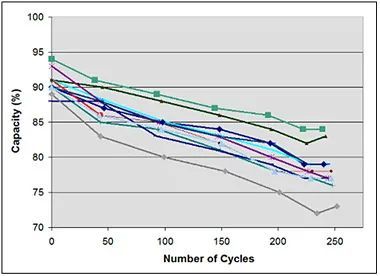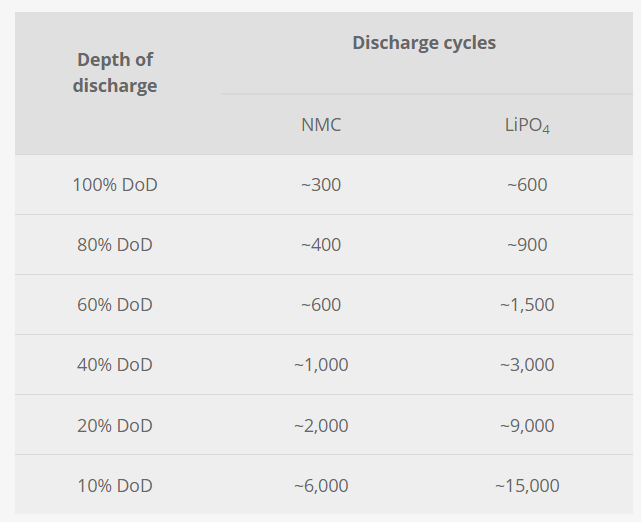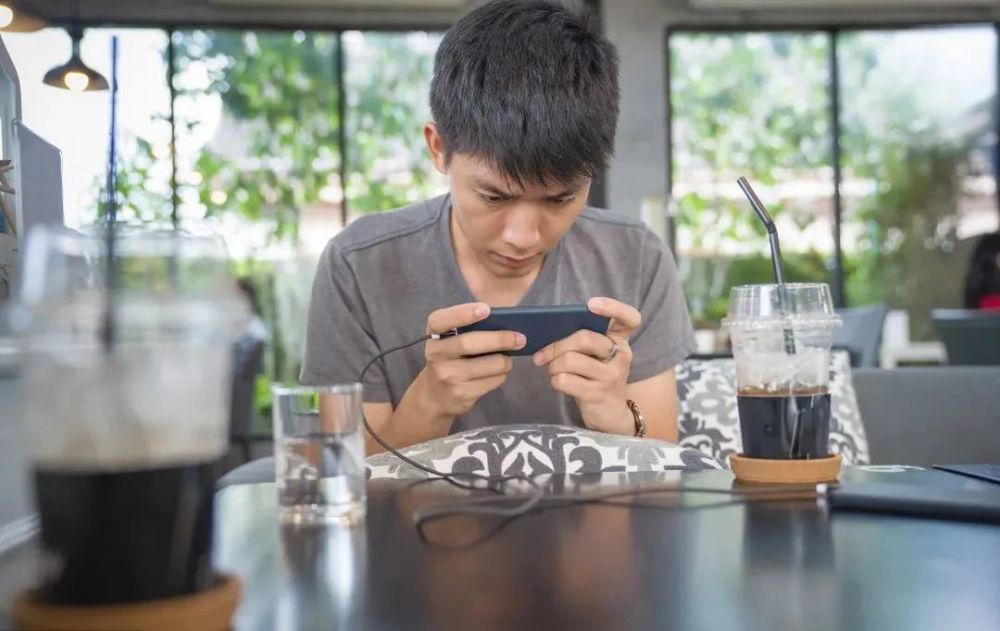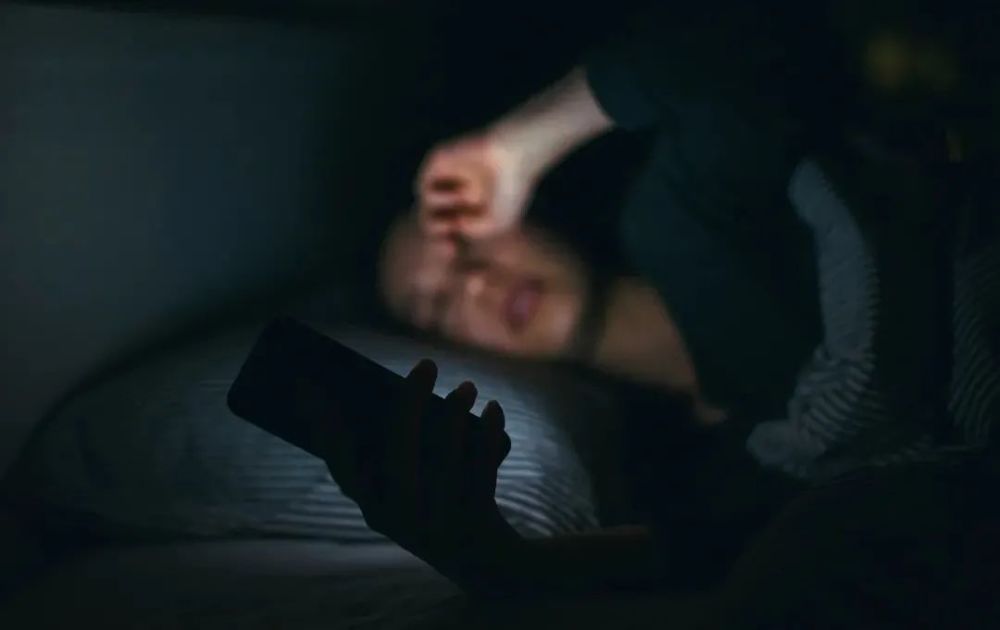There is a type of anxiety called power anxiety.
For people with power anxiety, they dare not go out without their cell phones fully charged, and they must carry a charging treasure of more than 10,000 mAh with them when they go out, and even if they don't have one, they must first see if there are any shared charging treasures in the vicinity that they can borrow.
The 100% in the upper right corner of their cell phone screen is the source of their security. They may not care much about going to bed on time, but they will never forget to charge their phone before bed.
But is it okay to charge your phone with a whole night's worth of phone battery?
Your charging position, may be wrong
We've all heard the rumors about charging cell phones, such as "Charge your new cell phone for XX hours" or "Charge your cell phone after it runs out of power, it's good for the battery".
In the days of nickel-cadmium batteries, such a claim did have some basis. But today's cell phones use lithium-ion batteries, which take less time to charge, last longer, and can be recharged as they are used [1].
However, batteries are consumables after all, and their capacity starts to decay from the moment you turn them on[2].
The "culprit" of battery capacity degradation is the "charging cycle", or "cycle" - when a cell phone is charged for 100%, it completes a cycle. Cell phone power used 100%, it completed a cycle of[1].
This cycle has nothing to do with how often you use the amount of light power, you play the original God, a few hours to the full power of the phone to the shutdown is a cycle; study well less brush the phone with two or three days before running out of power, but also just a cycle.
It is in this cycle that the actual capacity of the battery is unknowingly lost, which is why you may feel that after a year of using the phone, the power is not as durable as when you first bought it.
Battery research website Battery University tested 11 types of lithium-ion batteries for cycling and found that after 250 cycles, the battery capacity produced varying degrees of degradation, respectively [3].

Changes in battery capacity of 11 lithium-ion batteries after 250 cycles / Battery University
In general.After 300-500 cycles of lithium-ion batteries, the battery capacity will drop to 80% of the factory capacity[4]. At this time, it becomes difficult for the phone to maintain peak performance.
Take the iPhone as an example, when the battery capacity is lower than 80%, the most commonly encountered problem is the "card", the operation of the silky smooth feeling is gone, there are often encountered accidental shutdown; power drop becomes faster, nothing to do less than a day on the power.
The modern man's greatest fear is that low battery warning from his cell phone, when in fact, the battery is shivering.
If your cell phone is being played with until it runs out of juice every day, or if you charge it while playing, the battery life will diminish rapidly.
Battery University performed charge/discharge tests on two lithium batteries and counted the number of cycles that occurred in the batteries when the battery capacity dropped to 70% under different power usage scenarios.
It was eventually discovered that the process ofIf less electricity is used per day, the more cycles the battery can be used for[3].

The number of cycles / Battery University experienced by two lithium-ion batteries with different levels of depth of discharge when the battery capacity dropped to 70%.
Taking NMC lithium battery as an example, if only 10% of electricity is used every day, then by the time the battery decays to 70% capacity, the battery has cycled 6000 times, but if the electricity is used up every day, then after 300 cycles, the battery capacity drops to 70%.
So, even if they are all charging throughout the night, those who are stressed out by the power and always thinking about charging their phones will last longer on their batteries instead.
It is those who often use their cell phones to the point of "low battery" that are charging them incorrectly.
What batteries fear most is heat.
So, can you maximize the life of your phone's battery by just charging it as you go?
Not really, because apart from the posture of using the machine, there is another key factor that affects battery life - temperature.
Whether it's an iPhone, or some Android phones, one of the most common complaints is definitely the hot phone thing.
Before the king can be played, the phone may already be too hot to hold; the frame rate drops, trying to cut out the keyboard to the line is stuck to the point of no return; the darkened screen can only be recovered when the phone cools down.
The capacity of the cell phone battery, on the other hand, decays at an accelerated rate in the heat.
Battery University's tests show that even ifWithout using the phone, the increase in temperature still accelerates the decay of battery capacity[3].

Battery Capacity Decline at Different Temperatures for Different Raw Charge Batteries / Battery University. (2021). BU-808: How to prolong lithium based batteries?
Think about how much of an impact temperature can have on a battery lying quietly flat for a year, not to mention how many moments of temperature rise are created by daily operation and how much irritation it gives the battery.
What also affects the increase in battery temperature is charging.
"Charge for five minutes, talk for two hours" shouted for so many years, fast charging is already the standard for smartphones, even Apple, which has always been stingy, has supported PD fast charging since the iPhone X. The iPhone X is a fast charger, but the iPhone X is a fast charger.
Compared to normal charging, fast charging differs in the voltage output from the charger and the current injected into the battery [5].
To make an analogy, charging a battery is like the process of filling a pool with water, the size of the spout (voltage) and the speed of the water flow (current) determines the speed of water filling. Fast charging is to use a larger spout and faster speed to fill the water.
However, charging with higher voltage and current increases the heat generation of the cell phone and affects the battery life [6].
Charging while eating chicken is the ultimate battery test.

Man playing a game while charging at a cafe / primeimages / Getty Creatives / Visual China
In order to control heat and prevent the "pool" from getting too full, smartphones are equipped with a power management chip to manage the charging process.
Taking the iPhone as an example, the charging process of iPhone 12 series products is divided into two steps: fast charging + trickle charging.
The former is the effect of a high water flow injection, when the pool is about as full as 80%, then the injection port is narrowed to continue to slowly inject water until saturation [1].
With the double buff addition of the smart charging method and the chip, the impact of fast charging on battery life has been minimized to a low level. So does leaving it charging all night leave you high and dry?
Still a bit of a problem.
Although there is trickle charging, theCharging all night can still affect the chemicals inside the battery, which can reduce battery lifeThe
It's like our leg muscles swelling after a run in general, if you don't stretch them, they will be sore the next day, and the same goes for batteries.
This damage is nothing.
Having said that, it seems like we should be a little more gentle with our batteries.
But the thing is, cell phones are meant to be used. It's not like you have to play a few games to cool down and set an alarm to unplug your charging phone at night, right?
That's not a cell phone, it's an ancestor.
The truth is, batteries aren't as fragile as we think they are. You've probably switched phones two or three times before your cell phone battery collapsed.
According to Strategy Analytics, two-thirds of high-end cell phone users expect to purchase a new smartphone in the next 12 months[7].
Compared to worrying about the decaying capacity of your cell phone's batteryWhat really scares us in life is, "My cell phone is dying, but I can't charge it."The

People sit and rest while charging their cell phones in a cell phone charging area in a supermarket, Nanjing / Visual China
Instead of worrying about whether charging overnight will hurt the battery, you should worry about whether you forgot to plug it in before going to bed. If you don't charge it, your phone will only have 20% of power when you leave the house in the morning.
Not to mention the fact that nowadays you need to use your cell phone everywhere you go, it would be a real torture to think about the long commute to work without a cell phone to swipe.

Woman who refuses to put down her cell phone at night even though she's already visually fatigued / d3sign / Getty Creative / Visual China
Of course, if you're going to use a cell phone for four or five years, it's better to take more care of the battery in general.
So how do you charge to maximize the life of your battery?
After combining the principles of battery charging and reviewing the charging recommendations of major phone manufacturers such as Apple, Google and Huawei[8][9][10], we have made the following summary:
1, all-night charging has little impact, but can be charged as needed is better, with the charge, there is no need to be full.
2, don't wait for the battery power warning or power depletion before charging, this will do more harm to the battery.
3, it is best not to play with the phone while charging, to avoid overheating of the battery, if it is hot, let the phone and their hands to rest for a while, cool down. If you really can't help it, you can consider buying a cell phone cooling back clip.
4, away from extreme temperatures, 16-22 ° C ambient temperature is ideal, if the ambient temperature is higher than 35 ° C, may be permanently damaged battery capacity. Avoid prolonged exposure to direct sunlight, do not put the phone on the pillow bed head at night when you sleep so that it is not easy to dissipate the heat of the place to charge.
5, use genuine or certified and guaranteed chargers and charging cables, otherwise it may not be a matter of battery life decay, but the risk of explosion that kills.
Charging overnight is really not a big deal.To be able to do the above points, I believe that your cell phone battery for three or four years is no problem.
It really can't be carried, and a new battery for a couple hundred bucks is not much cheaper than buying a new phone.
[1] Apple mainland China official website. (2021). Support - Batteries - Why choose a lithium-ion battery - Official Apple Support.
[2] Battery University. (2021). BU-802: What causes capacity loss?
[3] Battery University. (2021). BU-808: How to prolong lithium based batteries?
[4] Battery University. (2021). BU-801b: How to define battery life?
[5] Wireko, K. (2021). Fast Charging VS Normal Charging - Which Damages The Battery?
[6] Anirban.(2020). Fast Charging VS Normal Charging - Which Is Better For Your Battery?
[7] Kerr. D. (2021). China Smartphone and Consumer Electronics Purchase Plans & Perferences.
[8] Apple mainland China official website. (2021). Support - Battery - Full performance - Official Apple Support.
[9] Google Pixel Phone Help.(2021). Get the most life from your Pixel phone battery.
[10] Huawei mainland China official website. (2021) . Service Support - How to extend the life of your cell phone and battery maintenance
[11] Villas-Boas, A. (2017). You' been charging your smartphone wrong. bussiness Insider.
[12] Dunn, J. (2017). Yes, it' safe to leave your smartphone plugged into the charger overnight. bussiness Insider.
[13] Whitney, L. (2017). Why you shouldn' charge your mobile phone overnight. time.
[14] Griffith, E. (2021). Charging your phone overnight : Battery myths debunked.
(Article source:(Tencent News Client Self-Media)
[___Zhongshun New Energy Technology Department October 18, 2021 Responsibility: Li Gong]
* Reproduced for the purpose of transmitting more information, and does not mean that we endorse its views and are responsible for its authenticity.




